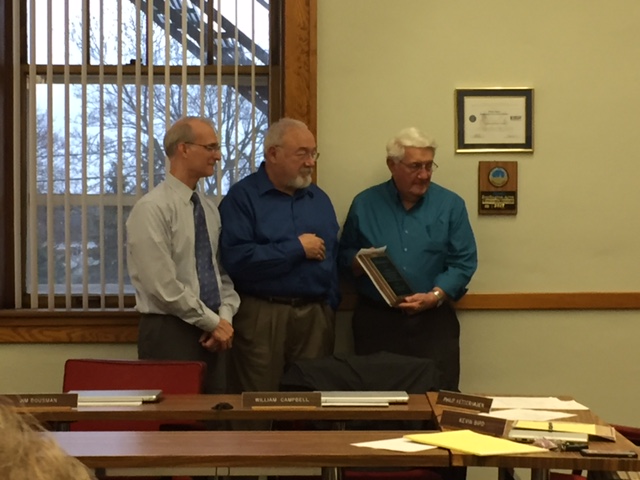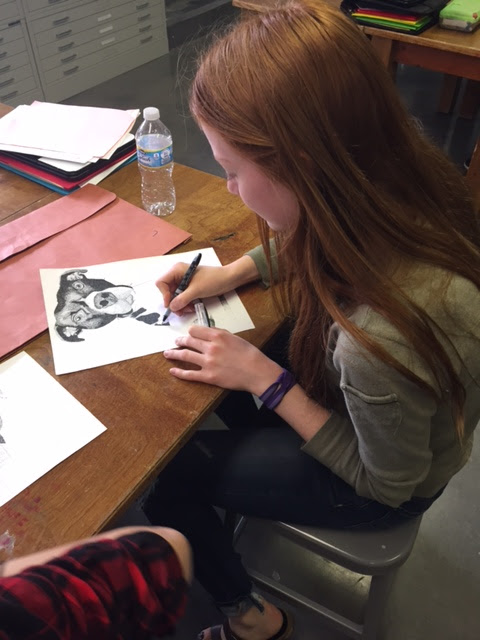Karcher 2016-2017 School Calendar
Student's of the week... we will update once we have the information!
______________________________________________________________________________
Kudos
_____________________________________________________________________________________________________
- Kudos to Steve Berezowitz, Becky Hoesly, and our special education department for all of your work throughout the Forward Exam! It takes a lot of behind the scenes time to create small groups, arrange tickets, etc.
- Thank you all for your work throughout the Forward Exam this past week with our students as we navigated through some technology issues while still maintaining a strong academic focus throughout!
- Testing will continue this week as well... see below for more details.
______________________________________________________________________________
Reminders
__________________________________________________________________________________________________________________________
- Forward Testing Reminders for this week:
- Please keep the number of students you allow in the hallways during class to a minimum all week as we will have testing taking place all week long.
- Our 8th grade ELA classes will be working on the Forward Writing piece throughout the week within their ELA classes.
- We will be calling for students to report to the library to finish up any makeup testing that is needed or to complete exams students were not able to complete throughout the week as well.
- Tuesday - Thursday (April 18 - 20) we will be conducting PE interviews so if you are looking for Matt or I we will be fairly tied up, especially on Wednesday and Thursday.
- Tuesday, April 18 - Start of iTime rotation during advisory. This iTime will run for three weeks with only one iTime rotation left after this one for the year.
- Wednesday, April 19 - Essential Skills PLC
- Mike Jones, Amanda Thate, and Stacy Stoughton will be walking through how they develop a sub-skill under an essential skill with the goal then of each content area creating at least one sub-skill description for what proficiency would sound like, look like, and feel like (Matt and I will be in PE interviews).
- Friday, April 21 - Fright Night Live (FNL) from 5:30 - 7:30!!!
- Please let Mike Jones or Donna Sturdevant know if you are able to assist with FNL.
- Those interested in attending Board and Brush on May 10 at 6:00pm in Lake Geneva please go to the below link! With teacher appreciation coming up I just thought this would be a great way for ANY staff to get together for a little Karcher bonding time. There are 18 slots available but we may be able to squeeze a few more in! Sign-up by May 7th in order for Board and Brush to gather everyones materials!
- Here is the LINK to register. Our "party" is called: Staff acting like a goose!
Board and Brush:
______________________________________________________________________________
Pictures from the week
_____________________________________________________________________________________________________
Article of the week: Here is the first half of this article... the next half will be included next week!
Grading to Communicate
Grades can only be a shiny distraction—unless we make them a strong message.
Throughout my career as an educator, I have experienced frustration with how my traditional classroom grading practices have influenced my students' learning. When I discuss this issue with colleagues, parents, and—most important—students, I find that I am not alone in my frustration. Paradoxically, grades detract from students' motivation to learn. It is time to reconsider our classroom grading practices.
Does Grading Interfere with Learning?
As a young teacher, I found the authority to give grades empowering. The grade was my ace in the hole, providing the leverage needed to entice students to cooperate. But as time passed, it dawned on me that the manner in which I was using grades conflicted with my deeper purposes as an educator. Again and again, students met my passion for a subject with their pragmatic concern for their grade. I wanted my economics students to wrestle with issues of equity or debate the costs and benefits of a minimum wage; they wondered whether the upcoming test would be essay or multiple-choice. I wanted my sociology students to consider the powerful role that group attachments play in personal decisions about religion or romance; they cared more about how many pages they would need to write for the essay.
I wanted my students to wonder, to understand, and ultimately to be changed. Many of them simply wanted a good grade. And the irony is, they were only responding as other educators and I had conditioned them to respond. We had trained them to see grades as a commodity rather than as a reflection of learning.
Comments from a student panel that my school district organized to investigate grading practices further elucidated the problem. Students reported that they see their schoolwork as a game they play for grades—a game that at best treats learning as incidental, and at worst distracts students from making meaning. One student referred to this grade game as academic bulimia: Students stuff themselves with information only to regurgitate it for the test, with little opportunity for the thoughtful engagement that would produce deep understanding and growth.
Do Grades Measure What We Value Most?
I recall telling my students, “Work hard and your grade will be fine.” Although I did not realize it, the message to students was clear: My unconscious curriculum was one of compliance.
Rather than Principles and Practices of Economics, my class might more accurately have been named Principles and Practices of Being a Good Kid. Some students received good grades and learned little; others learned much and failed. Grades measured students' willingness to cooperate and work hard rather than their understanding of economics or their ability to use that understanding to think more clearly about their world. I was not assessing the learning that I valued most.
Do Grades Provide Accurate Feedback?
When grades are not deliberately connected to learning, they provide little valuable feedback regarding students' academic strengths and weaknesses, and can even be counterproductive. I recently spoke with a frustrated father whose daughter is on the honor roll at her high school. He finds that despite her hard work and high grades, his daughter's writing skills are deficient. He is having a difficult time convincing this honor student that her skills need improvement. Rather than supporting learning, her grades are actually providing misleading information.
A colleague's experience reveals another manifestation of this problem. In the middle of the semester, she asked her language arts students to identify one area in which they hoped to improve during the second half of the course. Instead of identifying a skill, such as writing organization or reading comprehension, most students listed either tests or homework. Rather than identifying gaps in student learning, this teacher's grading practices had focused students' attention on the assessment tools.
Getting to Grading That Works
Three years ago, I became an instructional coach at Heritage High School in Littleton, Colorado, where I had taught for 14 years. As a result of the training I received in this new position, I began to significantly revise my approach to grading, and I now guide other teachers in doing the same. Littleton Public School District has launched a districtwide initiative to address the issue of grading practices. After a year of research and study, including soliciting input from parents and teachers, the board of education has authorized a representative teacher pilot group to explore changing how we grade our students.
The problems my colleagues and I have experienced point to a crucial disconnect between learning and grades. If we expect our grades to promote learning, then we must be sure that our grades assess and report the learning that we believe is most essential. We as educators must become more conscious of our goals: the knowledge we want our students to understand; the skills we want them to refine; the kinds of reasoning we want them to demonstrate; and the connections we hope they will make between abstract concepts and life.
Once we have clarified what knowledge, skills, reasoning, and connections we believe are essential in our classrooms, we can choose components based on this essential learning on which we will base our grades. For example, in a language arts class, the overall grades might be separated into the components of reading comprehension, writing process, writing product, speaking, literary elements, and effort/citizenship. It is important that these grade components align with the state and district standards; some may be drawn primarily from content or skills already identified by such standards. A grade that is separated into distinct components on the basis of key learning becomes a meaningful communication—to students and parents alike—about what students have and have not mastered.
Once I began deliberately defining what I wanted students to learn, a healthier grading system fell into place. In my Introduction to Sociology class for juniors and seniors, I grouped essential academic expectations into four components: conceptual understandings, application, analysis and evaluation, and formal writing.
To assess conceptual understanding, I monitored students' basic grasp of course content. For example, I expected students to be able to identify what sociologist Charles Cooley meant by the looking glass selfand to explain the difference between a functionalist and a conflict view of society. The application component assessed students' ability to make personal connections between course concepts and life. The analysis and evaluation component assessed how well students could use sociological concepts to deepen and challenge their understanding of the larger society. The formal writing component assessed students' writing skills.






